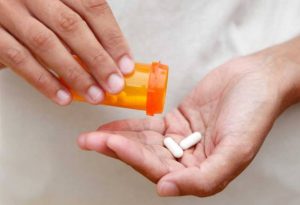 Antibiotics are an some of the most important medications pediatricians can use to combat infections. Antibiotics are also over requested and over prescribed. Antibiotics kill bacteria or keep them from reproducing. Disinfectants, like bleach, also kill bacteria but it’s not safe for people to inject disinfectants or to apply them topically. Antiseptics, like alcohol or chlorhexidine, can be applied topically but not ingested. When trying to kill bacteria in the body, nothing works like antibiotics because they cause minimal harm to your own body while they erradicate the bacteria that is causing the sickness. It wasn’t until the 1800’s that doctors realized that some diseases were being caused by infectious organisms. It wasn’t until the 1930’s that antibiotics like penicillin and sulfa compounds were used.
Antibiotics are an some of the most important medications pediatricians can use to combat infections. Antibiotics are also over requested and over prescribed. Antibiotics kill bacteria or keep them from reproducing. Disinfectants, like bleach, also kill bacteria but it’s not safe for people to inject disinfectants or to apply them topically. Antiseptics, like alcohol or chlorhexidine, can be applied topically but not ingested. When trying to kill bacteria in the body, nothing works like antibiotics because they cause minimal harm to your own body while they erradicate the bacteria that is causing the sickness. It wasn’t until the 1800’s that doctors realized that some diseases were being caused by infectious organisms. It wasn’t until the 1930’s that antibiotics like penicillin and sulfa compounds were used.
How Antibiotics Kill Bacteria
There are about 15-20 different classes of antibiotics and each of them works in a different way to kill bacteria or stop them from reproducing. Some types of antibiotics destroy the cell walls of bacteria and other target the part of our body that produce DNA or protein, which are necessary for bacteria reproduction. This is why different antibiotics are prescribed for different kinds of infections. Here’s the rub… bacteria can become resistant to antibiotics.
Antibiotic Resistance
Random mutations in bacteria allows bacteria to develop resistance to antibiotics. When the bacteria becomes resistant than to a certain type of antibiotic, that antibiotic then become useless. The antibiotic resistant bacteria are called super bugs. Some super bugs are methicillin-resistant Staphylococcus aureus, vancomycin-resistant Enterococcus, and multi-drug-resistant tuberculosis. We are also seeing a resurgence of gonorrhea in several countries where strains of that infection are becoming resistant. You can see how serious this gets if more and more bacteria get resistant to the drugs which which we use to treat them.
How to Help Antibiotics Do Their Job
- Don’t unnecessarily use antibiotics
- Don’t partially-treated infections – Make sure to use the full antibiotic prescribed over the period prescribed.
- Don’t overuse of antibiotics in animals raised for food.
Next we’ll discuss which antibiotics should be used for which infections and how long they should be used.
Antibiotic Series Posts
- Antibiotics Series #1 - How Antibiotics Kill Bacteria But Can Become Resistant Overtime...
- Antibiotics Series #3 – Antibiotics Can Prevent Infections, Especially For Children With Chronic Conditions
- Antibiotics Series #2 - Choosing the Correct Antibiotic for Your Child's Illness
Contact Us (859-525-8181) if you have any questions!
—
 About Pediatrics of Florence
About Pediatrics of Florence
We believe that children are more than just “little adults.” They have unique personalities, challenges, and life circumstances and we have made every effort to make our offices and care as “kid friendly” as possible. We have an aquatic theme in the waiting rooms (separated for sick and well children) as well as themed examination rooms. All of our physicians are Board Certified Pediatricians and members of the American Academy of Pediatrics and our nurse practitioners are all licensed Pediatric Nurse Practitioners and are available to see both well and sick children.
>> More About Pediatrics of Florence
